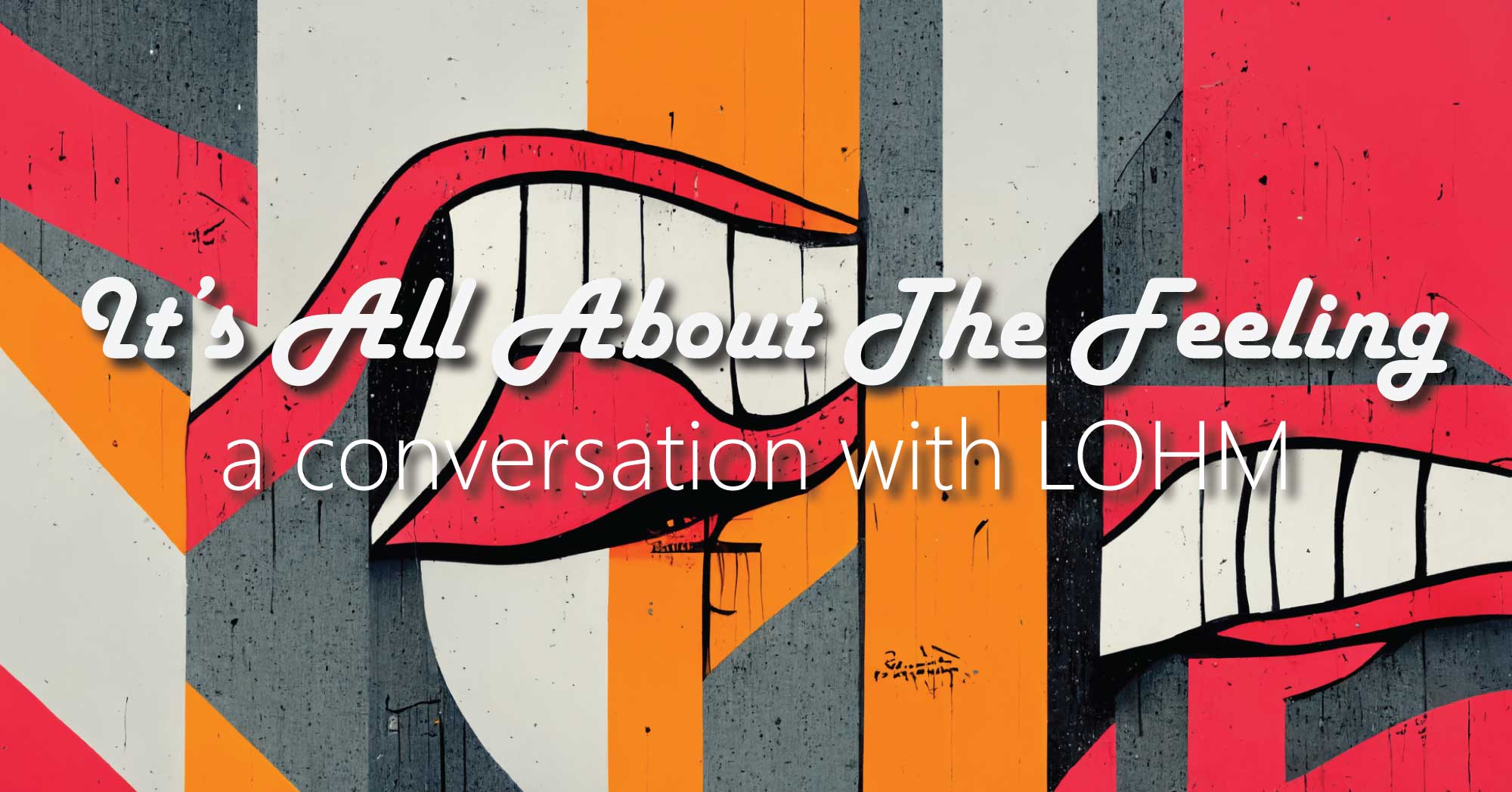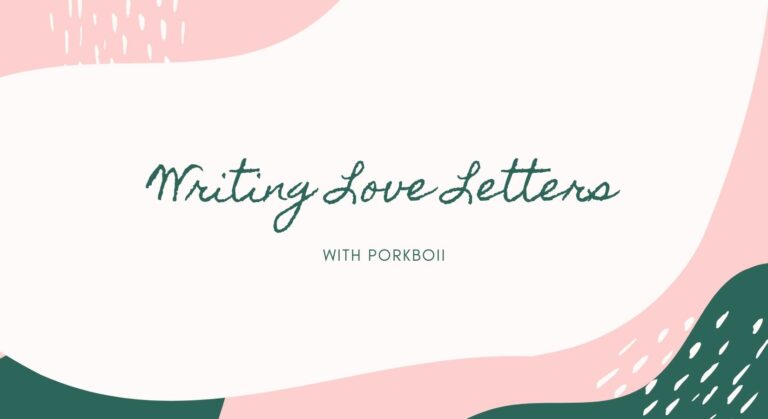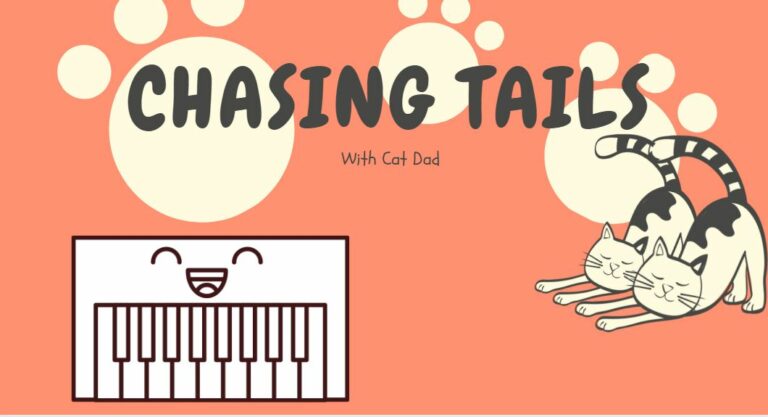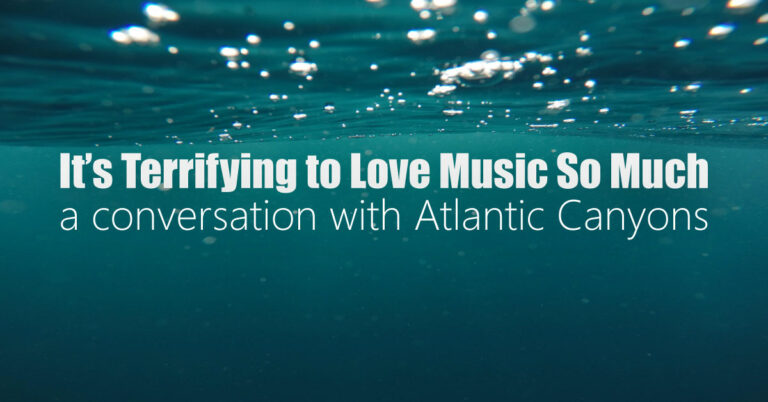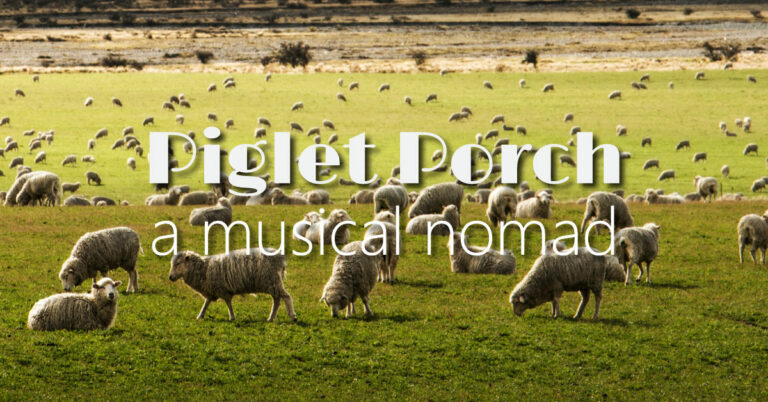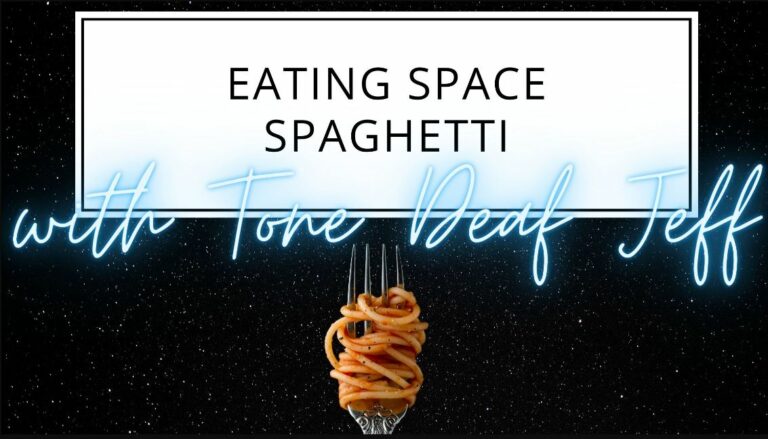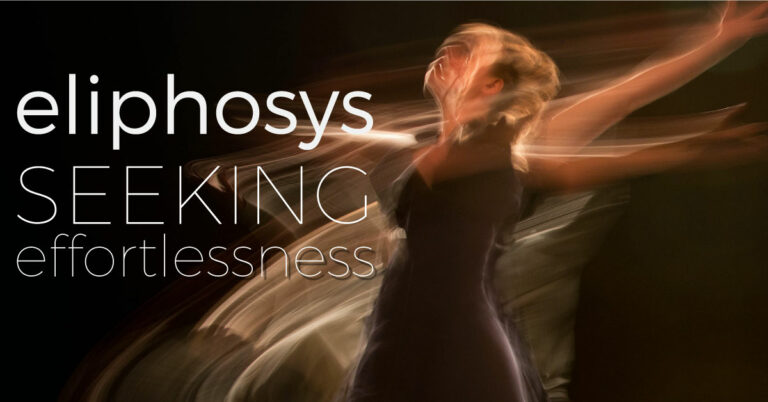This piece is part of my series called Why We Create, in which I talk with producers and musicians about their creative process. I started this project as a way of investigating my own creativity, and it’s really taken on a life of its own. In a really meta way, this project investigating creativity has become part of my own creative body of work, and it’s been cool to experience this unfolding over the last year and a half.
A while back, I started making spoken word pieces with each of my interview subjects, in which they respond to the prompt, “What do you think about when you think about making music?” These pieces are all collected on my Soundcloud and Bandcamp – check out some of the things others have said about their work.
Along with this interview I did with IMF producer LOHM, I made a track from his spoken words, set to a remix of Great Falls, from LOHM Industries Vol 1. Listen while you read for the full multimedia wraparound Why We Create experience.
Stay tuned for more pieces in this series. I’ve been super busy lately, and so the pace of these has slowed down a bit, but my passion for them hasn’t. Patience is its own reward, or whatever.
LOHM is a producer, collaborator, shredder, DJ, and all-around nice guy. His solo work and other projects run the gamut from downtempo danceable electronica to nu-metal, and lots between. He’s done tracks with (and worked on tracks for) so many IMF artists, I can’t even be bothered to take the time to make a list here. You should absolutely check out his full catalog. Regardless of your taste, you’ll probably find something you like.
I had the privilege of speaking with LOHM about his creative process a while back. Our interview is below, edited for clarity and brevity.
please enjoy
– popijininsky
How did you discover music?
My earliest memories of falling in love with music are about checking out my dad’s record collection. I would spend all day listening to music, checking out album art, reading liner notes, all that.
He liked a mix of everything, but mostly classic rock…ELO, Beatles, Rolling Stones, that kind of thing. He played a bit in bands when he was in college, but mostly he was just a fan. I actually got my name from his high school buddy that played in a band with him for a while, and that he always looked up to. But even after he stopped playing, he always listened, and collected, and enjoyed music, so it was always around.
In middle school, I picked up the trumpet, and learned some music theory and technique. Around the same time, I asked for a guitar for my birthday, and picked up the guitar…that was all about learning music that inspired me – Green Day and whatever was on the radio that I wanted to learn. The two things actually complemented each other. In school, I was learning basic technique and theory, but learning songs I loved brought the emotion I needed to connect with it.
When did you first start making your own music?
In high school, in Florida, I started to work with friends, and we had a couple bands with various combinations of us. And we made new songs—rudimentary pop punk sort of stuff. We would play shows at our friends’ houses, and that’s about as far as we got.
My family moved to the Atlanta suburbs when I was in my senior year of high school. That was a huge culture shock. I was coming from a really multicultural place – South Florida, and back then, the Atlanta suburbs were pretty white, and butted right up against the more rural areas of Georgia, which were really conservative.
I made some friends, and found people to play with, and played more pop punk, which then evolved into metalcore, or screamo or whatever you want to call that stuff. We played a bunch of shows at the local club in our suburb. We played one or two shows at bigger clubs, mostly in battle of the bands type shows.
How was all that for you?
It was eye-opening. Once I was in a band playing with a lot of other local bands, I realized there were a bunch of bands like ours, and that none of us really stood out particularly. It was humbling for me to realize that some of the best shows we would play would be for each other.
What was next for you musically?
Eventually, I took a job as a traveling electrician, and started spending a lot of time on the road. I bought a laptop, and started to learn to record and produce music on my own. I was really inspired by Idiot Pilot – just a couple guys and a laptop making pretty interesting stuff. This gave me a different idea of what music making could be like, and of what a band could be.
While I was in that job, we would spend several weeks at a time working on some commercial project just about anywhere in the country—wiring up the lighting at the new Men’s Wearhouse, or whatever. So I had a lot of time in unfamiliar places, and not a lot of money to spend. I’d just hang out in the hotel most nights and make beats, and once in a while go out with the guys and catch a local show.
Looking back, it seems like this was the equivalent of my touring experience – living out of suitcases, staying in cheap hotels, eating a lot of fast food, making music at night. Smaller, and with no performances, but otherwise a lot like living on tour.
What were you trying to do with the music you were making?
I guess I had dreams that my music would get me in a place where I could perform and tour and release albums and such. But really, I was just experimenting and having fun with sounds and new ways of making music. I bought Ableton 4 so that’s what I started learning.
I think of Ableton as kind of an EDM platform, especially back then – you had been making rock & roll – why did you pick Ableton?
Because it came free with my sound card [laughs].
I learned how to make my way around Ableton and it changed the way I was working. I learned how to make electronic drum racks, and layer sounds around the guitar parts I was recording.
I never really intended to keep making music this way – I figured at some point I’d get ProTools and get back to recording more instruments, but I just kept doing what I started and changed my approach to music to adapt to the tools I had.
How long were you doing this kind of solo experimentation?
Probably about 10 years – I evolved my skills quite a bit, learned to compose and make actual songs. I watched all the Youtube videos I could find, and just spent a lot of time experimenting with all the tools I had, and learned pretty much every knob in Ableton and got kind of fluent with it.
It wasn’t really possible back then to get a good rock drum sound, but I leaned a bit into the electronic drum sounds. My love for lots of different genres helped. I would just stumble across a new sound, and think, “This would sound great in a funk song,” so then I would make a funk song.
I’m a fan of most music—I find something interesting in pretty much all genres. So, when I was making music, I’d hear things that reminded me of similar things I’d heard, and really felt free to just follow that inspiration and make music that worked with those sounds.
It took me a while to get to the point where I felt like I was making good songs, and not just sketches.
How did you find IMF?
I found the subreddit first, and joined the Discord a bit later. When I did, I really dove in headfirst. I realized I missed having the musical friendships I had when I was younger, and I found that again in the IMF community. I would take on any project that came my way.
I joined the Discord when it was still pretty small – there were just a couple hundred people on it back then. I was on the server through all its explosive growth in late 2020 and 2021. It never seemed to stop, which was great – there were always new people joining and they were really interesting artists and inspiring.
I know you to be really eclectic as a collaborator and producer
I’m really susceptible to enthusiasm, so when someone comes to me and says, “I’m really excited about this thing I’m working on, and it would be awesome to have you do whatever on it,” I get excited and want to be part of it.
You’re really prolific…I see your name on tracks all the time
It’s been kind of shocking even to me, honestly. Until I joined IMF, I hadn’t really released much, but things I was doing in IMF were getting great feedback, and more people wanted to work with me, and it just snowballed. Before IMF, I had just released one album, and hadn’t really learned how to get my music heard.
What’s your reddit username all about?
It’s PM_ME_YOUR_VOCALS…before IMF, I had the idea that the way to make good music was to find vocalists and arrange music behind them. I would take just about any a capella vocal from just about anyone. But I found myself getting ghosted a lot. In the end, I started to feel like that username was sort of a desperate plea for collaboration, and it definitely wasn’t working the way I wanted it to.
The IMF Discord really changed that dynamic for me.
Along with a lot of single tracks and remixes and whatever, you’ve released several albums in the past couple years
Yeah, three volumes of LOHM Industries (1 2 3), and Untitled / Unfinished. And PIX3LARMY Vol 1.
Tell me about P1X3LARMY
Dixie Flatline (fka Starcry, fka Flimsy) joined the Discord around the same time, and we’ve got similar musical tastes, and we’re around the same age. We would end up getting on lots of collabs together with other people – we ended up being the studio musicians for a bunch of folks.
We always talked about doing some kind of metal/electro fusion, sort of like Orgy (Blue Monday cover). Eventually, he came to me with a sketch of a song that he was like, “This really feels like the path,” and we both got really excited and PIX3LARMY was born.
Dixie brings a lot of songwriting craft, and I bring my production and mixing skills, and it’s a great pairing.
What’s different for you working solo vs. with others?
When I’m working on my own, I’ll just let the song take me wherever I think it wants to go. When I’m working with someone else, I want to let them guide the process, especially when it was their idea to start. And I really take the role of offering options and letting them make the decisions, helping them realize their vision. I feel like I’m a lot more focused when I’m collaborating.
Also, it sounds like you don’t really want to be in control in collaborations.
Yeah, that’s right. I really want to serve the vision.
I think I’m kind of bad at that…when I’m collabbing, I have a hard time holding back once something starts to grab me
I’ve had a lot of practice with it. I’ve developed the skill over lots of projects. I think I’ve gotten decent at just posing options as questions to my collaborators, instead of suggesting answers.
How do you think about your listeners?
I don’t think I’ve really ever developed a sense of an audience. I think the majority of people that listen to the stuff I make are part of my creative community, and it’s like sharing my creations with my friends. It’s still a pretty foreign thought for me to imagine people outside that circle finding and listening to my stuff. So, I just keep doing what I like to do.
I don’t feel like I need to worry about doing the right thing for my audience – I’m pretty relaxed about the whole thing.
So you don’t put much effort into cultivating a listener base?
No. I’m really bad at promotion – I don’t have the drive to tell a lot of people, “Hey, I made this great thing, and you should listen.” Most of the enjoyment I get from making music ends when I finish the track and release it. I don’t need anything past that.
It’s incredible when people tell me they hear and enjoy my music, but not the real goal for me.
Do you wish you had more skill in promoting your material?
Yeah, I do. In the back of my head, I sometimes think, “There are probably lots of people out there who would enjoy this, and I should do the work to help them find it.” And then my humble nature wins out, and I don’t. It just doesn’t click for me.
Why do you wish you had that ability?
I don’t know. It feels like it’s part of the process, and maybe I’m leaving a box unchecked. I’ve never really thought that hard about it. For me, promotion feels like work, and creating is a totally different thing, and I don’t want to do more work.
It’s the difference between a hobby and a career. I’m looking for music to make me happy, not be my job. I think a lot of people skip past that decision. All the tips and tricks you see for new musicians or producers have to do with how to get popular and be famous. At no point does anyone tell musicians that you don’t need to do anything you don’t want to do when you’re making music. Sometimes the best advice is, “just keep creating.”
When I play my music for other people sometimes, they’re mostly interested in how successful I am at it – how many plays I’m getting or whatever. And that’s just not all that interesting to me. Yeah, I guess I wouldn’t mind standing on stage at Madison Square Garden, in theory, but I know what it takes to get there, and I’m not really willing to put in that kind of effort or work. I just want to keep creating.
I think about what we as creators have become in this internet economy. Sometimes I feel like we’re turning into button-pressers that just make money for some investors somewhere
It got worse during the pandemic for sure – there were a whole lot of people who became a new customer base of dreamers. They needed beats, and software, and distribution, and whatever. And a whole lot of platforms and products and whatever got built to help the bedroom producer.
Where does your drive to create come from?
I don’t really know, but it’s real. It makes me do all sorts of silly things. God bless my wife, who’s watched me spend all these hundreds of hours, taking her out to listen to rough mixes in the car for long drives so I can hear whether they’re working. For like a month. She knows I’m obsessed with what I’m doing, and she’s really supportive. It sounds a little insane. It probably is.
What does your wife do?

She’s a designer. She recently left her day job working for a textile company. She’s launching her own business now. She’s making these great fabric-wrapped guitars – sanding the paint off old ones and wrapping them with fabric she’s been collecting. They are actually incredible.
Are you still working as an electrician?
I do tech support from home now. It’s a great setup – my office is my studio, and I can go back and forth between the two. The job is pretty low key, and it pays the bills, and I can spend what feels like the right amount of time creating.
What are you working on now?
More PIX3LARMY. I’m mixing a new WilliamAx album. I’m also part of a new project with Trex, Pultixima and Bug, called Driftnauts. We’re working on our first EP – we just dropped the first track from the project recently. I really love all those guys. We’re all really good at working in different styles. Everyone is open to doing whatever.
How do you feel about IMF today? You’ve been around for a while.
The tools of IMF are the best I’ve ever seen – the feedback mechanism, the resources on the discord, and all the great supportive people. A lot of us have gone back to a more normal life, and don’t spend as much time on the Discord these days, but it’s still there, and all the games are still happening, and I still pay attention to what’s happening there. I hop into events from time to time.
But really, the impact of IMF for me is that I’ve connected with all these great creative people, and we’re working on projects together, even if we’re not chatting about them IMF #general like we used to. So many people just know me know – they reach out to me directly, and we get into all kinds of fun projects together.
